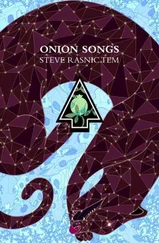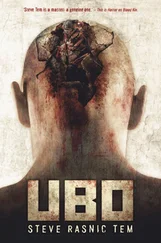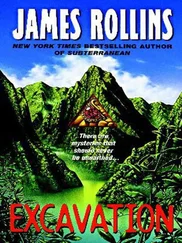He was seeing his life with Carol. Her hands massaging his hairline, outlining his jaw. He wanted to turn on the light and clear her away, burn the image out of his closed eyelids. But he could not.
Even now he wasn’t used to the idea of being married, having his own, separate family. Their skin, trying to remember them here, in the dark, seemed paler somehow than normal skin; their hair had too many shadows, their moist eyes too many highlights. They never had the reality his mother and father and little sister had, but seemed more a dream never meant to be remembered.
His wife and kids were what he’d always hoped for, dreamed of, but could not believe would ever be his. So his senses always seemed to deny their presence in subtle and disturbing ways. He missed words out of their sentences; when he read or watched TV, they weren’t there. Sometimes when he went out late for a paper or coffee, he’d forget which house was his. Little things. They bothered Carol tremendously. His many distractions, his absent gaze, as if he were viewing another channel in his mind.
Something was trembling in the room.
My God, the house is coming down, he thought. I’ve got to get out…
But he could not move, and realized it was because he had been dreaming, and might still be dreaming. And with that he found himself standing again, in his father’s house in the Appalachians, his mother at work in the kitchen, singing to the gospel station on the radio.
He turned and looked around the living room—the staircase behind him with the brown banister, the old radio with so many knobs and half of them not working, his father’s bright blue overstuffed chair. His mother had made lace doilies for the arms a year ago last summer and had warned his father not to go ruining them. His father sat in that chair now, his newspaper propped up on his barrel of a chest and stomach, his meaty fingers rubbing the backs of the pages nervously as he read, so that he would always have that grayish powder on his palms and fingertips.
The room was dimly lit, as always. The shadows had dull, mud yellow halos around them. You never could see faces clearly enough to know what they were feeling.
Reed stared at the paper. It was trembling.
The newspaper was shaking just perceptibly from side to side, back and forth, just vaguely enough that Reed’s attention was drawn into the motion, and just noticeably enough that it made him nauseous to watch it.
Then there was a rumbling from behind the newspaper and Reed thought it was his father asleep, snoring in his usual basso way. Then he thought maybe his father wasn’t sleeping at all, but growling, his animal eyes alert for any false moves. Reed was unaccountably terrified that he couldn’t see his father’s eyes behind the paper.
There was a low vibration in the room.
Reed looked all around him for the source of the vibration, but it seemed to be coming from everywhere. He looked behind the radio and beneath, thinking there had been some sort of odd feedback effect. But as he got closer to the radio he could hear the faint sounds of the gospel music still playing, and when he looked into the kitchen his mother was still singing along, singing as if nothing were wrong, as if all she could hear was the song and there was nothing to worry about, nothing to worry about, Reed honey, nothing at all.
Even as the vibration grew louder, Reed’s mother continued to sing, smiling and gazing out the kitchen window, her sandy hair duller than he remembered it.
Reed looked at his father, who was still reading the paper, still rubbing his fingers delicately against the print, rubbing the ink into his fingers where it would remain for all time. For all time.
Water had started to pool on the floor.
Water was seeping out of every corner of the room, coming up through the floorboards, dripping out of the light fixtures. Water was oozing out of the old imitation-Persian rugs they said Reed’s grandfather had hauled over the ridge in a tiny wagon, dripping down the wallpaper with the pale green cupids holding pale blue flowers, sloshing around the red-slippered feet of his father. Who did not react. Who continued to read his paper.
Reed didn’t know what to do. He began to scream at his father, reaching after the paper to tear it away. But his father would move the paper, just ever so slightly, so Reed never could reach it. Reed tried again and again, but the paper was always just out of his reach.
“I’ll drown because of you!” he shouted. But there was no reaction from his father. “Tell me what to do!” His father read and rubbed the paper, water dripping on his forehead. Reed’s mother continued to sing. “Daddy!” Reed screamed.
Mud was creeping over the floor.
Dark, rich mud covered up the left edge of the Persian carpet, then the entire left side. It pooled around one of the legs of the triangular maple side table and began climbing it. It lapped at the blue overstuffed chair with a sound like a thick tongue in grease. It crept closer and closer to his father’s red-slippered feet. “Daddy!” Reed screamed again, but there was no response. The meaty fingers continued to rub at the print, eating first one word, then another.
Reed looked around him, and did not know what he could do. He thought this was somehow wrong. He was twenty-eight; he wasn’t a child anymore. But he had wet his pants. He was a child, really was a child, and he was scared… he didn’t know what to do.
His mother came singing into the living room, her bare feet splashing through the oozing mud and water. It looks like the gully under Johnson’s outhouse, Reed thought in wonder, and cringed away from her. Her eyes were wide open, but her face looked so relaxed it was as if she were asleep. Her mouth was wide open, too, singing the gospel tune as she stared at him. It was no song he could remember. He could not even understand the words—they seemed so thick, full of choked-off syllables, garbled—but the song terrified him. He looked down at her feet, and the rich brown mud covered them. He turned to run.
Reed’s mother screamed and began chasing him. “Don’t go! Don’t leave us!” she shouted, but Reed jumped onto the first-step of the stairwell and began bounding up to the second story, away from the water and mud, his mother’s outstretched arms clawing at him.
…when the wall of mud came thundering down the stairs to greet him.
~ * ~
Something was trembling in the room.
Reed couldn’t bring himself to open his eyes. Something about the vibration made him want to stay asleep. He remembered being awake before, and how there was a difference. The vibration seemed clearer, as if a layer of sleep, or dream, had been peeled away. But he still wasn’t quite able to understand it, to figure out what it could be. There was still a darkness in his head.
He was still in that hypnagogic state between sleep and awakening, and it had always struck him as bizarrely self-conscious to be aware that he was in that state, even at the time he was in it. Or when in a dream he became aware that he was dreaming. It changed the experience; it gave him a powerful sense of freedom and self-control.
The vibration again, much clearer now.
He felt like opening his eyes but did not. The dark was warm and comfortable. He imagined that outside it was cold, the darkness graying as sunrise approached. He really didn’t like that time of day, the way the light appeared to his eyes, everything slightly hazy and insubstantial. The dark seemed to have more substance. You could always fight substantial things; at least you had a chance.
The vibration seemed to have risen in pitch until it hurt his ears. It was the phone. Ringing. Carol wouldn’t answer it; she must still be in the office. He had to answer it. He had to stop the ringing.
Читать дальше












